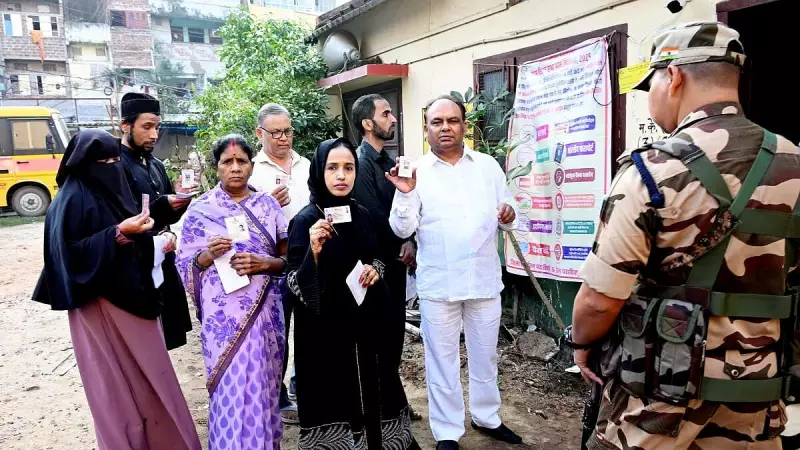
Thousands of kilometers away from their home state, Bihari migrants working in Andhra Pradesh are closely watching political developments back home as Bihar prepares for crucial assembly elections in 2025. The migrant community, which forms a significant workforce in various sectors across Andhra Pradesh, expresses a spectrum of expectations and concerns that could potentially influence voting patterns.
Diverse Political Perspectives Among Migrant Workforce
The Bihari diaspora in Andhra Pradesh presents a mosaic of political opinions, reflecting the complex socio-economic landscape of their home state. While some migrants maintain strong connections with their roots and follow political developments closely, others feel increasingly disconnected from Bihar's political narrative.
"Employment opportunities remain our primary concern," says Ramesh Kumar, a construction worker in Visakhapatnam. "We left Bihar because there were no jobs. If any party can guarantee stable employment back home, we wouldn't need to migrate thousands of kilometers away from our families."
Development vs Identity Politics
Many educated migrants working in Andhra Pradesh's urban centers emphasize the need for development-focused governance over traditional identity politics. "We've seen how proper infrastructure and industrial development can transform regions here in Andhra," notes Priya Singh, an IT professional in Vijayawada. "We want similar progress in Bihar—better roads, reliable electricity, and quality healthcare facilities."
However, the political discourse isn't entirely dominated by development agenda. Several migrant workers still prioritize caste equations and community representation, indicating that identity politics continues to play a significant role in their political choices.
Challenges in Electoral Participation
The geographical distance poses practical challenges for migrant voters. Many express frustration about their inability to participate in the electoral process due to the financial and logistical difficulties of traveling home to vote.
"Last election, I lost fifteen days' wages plus travel expenses to go vote," shares Mohan Patel, a factory worker in Guntur. "While we want to exercise our democratic right, the cost is often too high for daily wage earners like us."
Expectations from Political Leadership
The migrant community's wishlist from potential political leaders includes:
- Job creation within Bihar to reduce migration pressure
- Improved law and order situation
- Better educational facilities for their children back home
- Agricultural reforms to support farming communities
- Transparent governance and corruption-free administration
The Remittance Economy Factor
Economic analysts note that remittances from migrants working in states like Andhra Pradesh contribute significantly to Bihar's economy. This financial connection keeps migrants invested in their home state's development, even as they build lives elsewhere.
"Our earnings support families back in Bihar and contribute to local economies there," explains Sanjay Gupta, who runs a small business in Tirupati. "We have a stake in Bihar's progress, even if we're physically absent for most of the year."
As election fervor gradually builds up, political parties in Bihar would do well to acknowledge the concerns of their migrant population, whose economic contributions and political opinions could potentially sway electoral outcomes in several constituencies.






